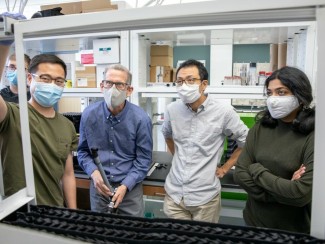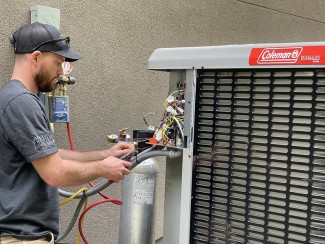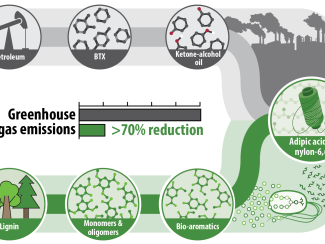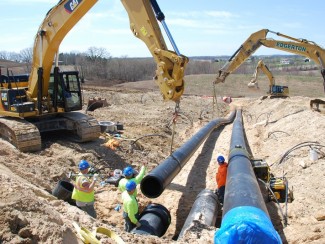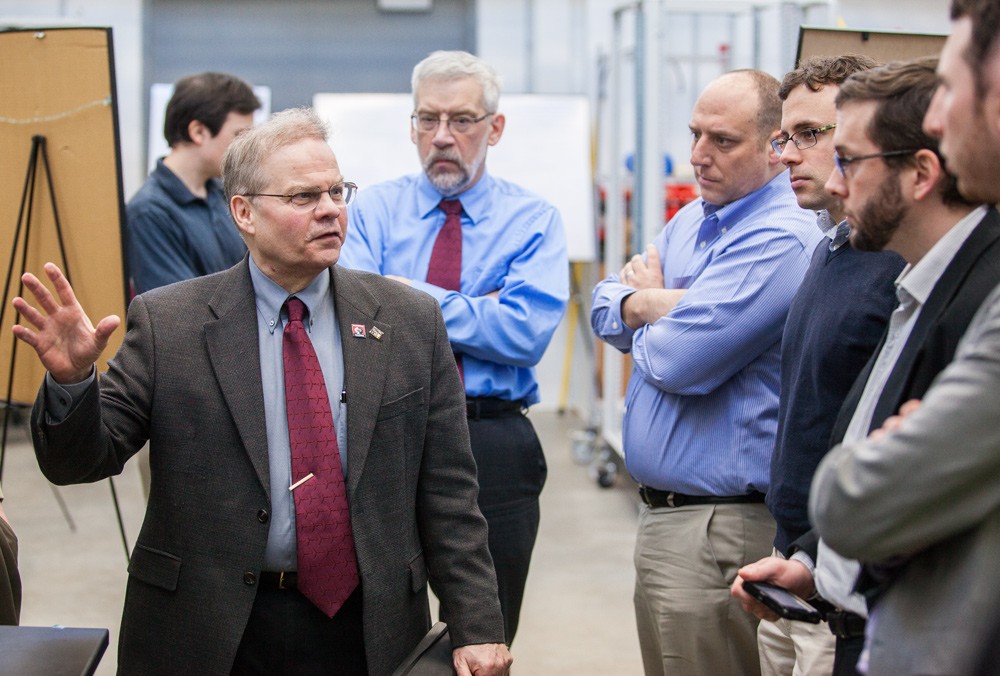
Sporting a broad smile and stepping lively, Bruce Beihoff seems far from his demise – and yet he’s already planning his epitaph. “Once I’m in the ground,” says Beihoff, “just make sure the rock reads ‘He fought the good fight!’”
As the Technical Director of Industry Relations at the Wisconsin Energy Institute (WEI), Bruce Beihoff’s “good fight” is really an important everyday mission: forging the strong partnerships between university researchers and industry that help bring impact and innovation to the energy sector.
“My role here at the Wisconsin Energy Institute is to identify key problem areas in energy research that need to be solved,” says Beihoff, “and then to bring together the right parts of the university and the right parts of industry to collaborate on work of the highest value.”
Though the acts of connecting, partnering, and collaborating might seem intangible, Beihoff’s work is anything but. On the rooftop just outside his office in the WEI building, SunPower solar panels represent the institute’s partnership with the world’s second largest solar energy company. While down on the first floor, scientists and engineers explore new advanced energy storage technologies in the Johnson Controls Advanced Systems Test Lab, the result of an ongoing research partnership with the Milwaukee-based company Johnson Controls.
Beihoff, who came to WEI after almost four decades working in industry, was recently recognized by the UW–Madison’s Department of Electrical and Computer Engineering as one of “125 People of Impact” – a list of alumni and faculty who have made significant contributions to the department, the university, and to industry. Beihoff says the thread connecting all of his career achievements thus far is an interest in helping others to problem-solve, an important driver of his work at WEI as well.
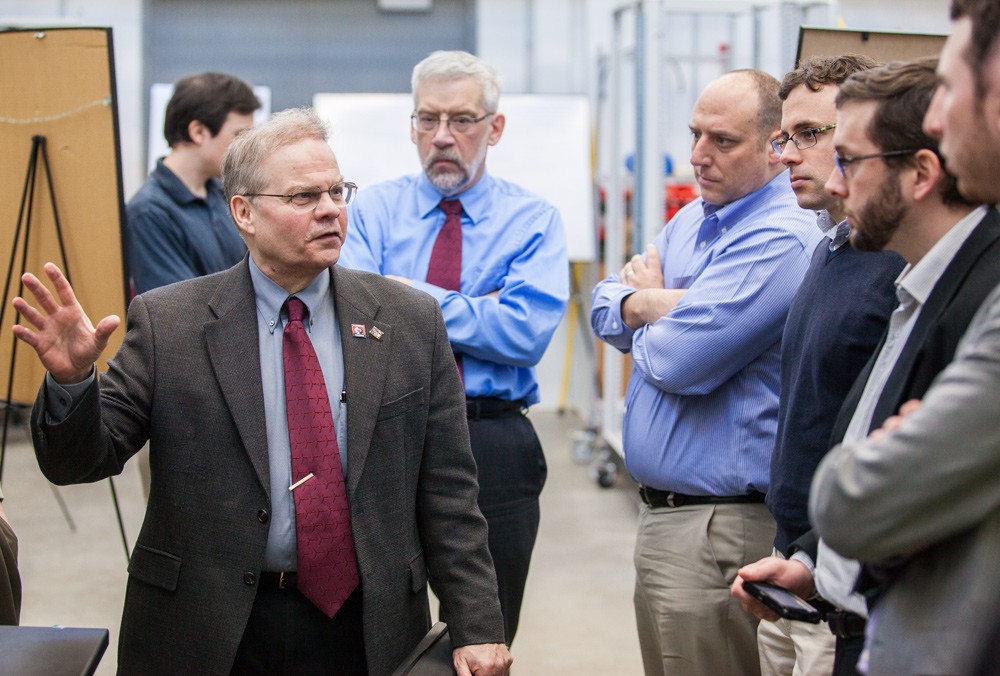
Strong and long-standing relationships with numerous public-private research consortiums help Beihoff in promoting and creating future-focused research collaboration at WEI. As Director of Technology and Innovation for the Mid-West Energy Research Consortium (M-WERC), a consortium focused on the Midwest’s energy, power, and control sector, Biehoff works closely with M-WERC’s industrial members.
“M-WERC has a cadre of leading technology companies who rely on the university to produce the talent and research they need,” says Beihoff. “This seamlessly interlocks with the work we do at WEI. Working together, we’re able to design and develop better energy products and get them to consumers faster.”
These collaborations also carry tangible results, especially here in Wisconsin. According to the Wisconsin Economic Development Corporation, the Dairy State’s energy, power, and control sector consists of more than 900 companies generating $38 billion in sales each year and employing over 100,000 people.
With Beihoff’s guidance, WEI researchers also work closely with the UW–Madison based Wisconsin Electric Machines and Power Electronics Consortium (WEMPEC), an internationally renowned group that facilitates collaboration in power electronics and electric machines research. Through WEMPEC, WEI researchers are currently conducting research with companies such as General Motors, Ford, and Nissan.
A systems engineer by training, Beihoff believes that addressing the complex problems related to energy use requires a systems-based approach, an understanding that takes the entire system into account, the business market and the environment included.
“This systems engineering approach helps me promote the kind of cooperative research and development that leads to sustainable energy innovation,” says Beihoff. “Systems help people see a bigger picture without losing the small-scale details.”
According to Beihoff, it’s the relationship between energy researchers and industry, and its systems approach to solving energy challenges, which put WEI on the cutting edge of new cooperative models.
“Cooperative R&D [research and development] is a great engine for solving important energy problems,” says Beihoff. “UW–Madison is a great place to forge these types of collaborations and WEI provides the solid platform we need to make it happen.”


